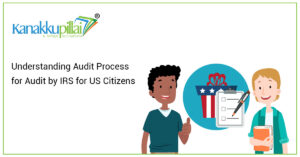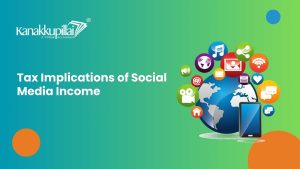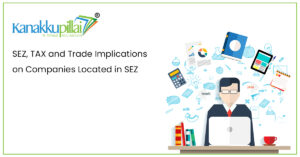![]()
Learn How to Avoid Last Minute Tax Planning Goof-Ups!!
Just a fortnight away from the March 31 s investment proofs’ submission deadline – One can almost visualize the panic frenzy employees rounding up the corridors of already overworked and understandably cranky Finance/Accounts teams of their employers. After all, this is the month when Payroll mills work round the clock – cleaning up the entire years’ Accounting metrics’ for the employers/employees – heavy files to be uploaded/whisked away on various government portals. Finance/Payroll hubs look no less than a Mission Critical NASA Drome; especially days before the final countdown of their D-Day, March 31 st . Data completion & accuracy must go hand in hand or else all hell may break loose!!
Could one blame the overworked finance folks or the employees with last minute ten thousand queries?
Well, the answer to this question lies in the question itself!! The key note being “Last Minute”!!
Eh! Confused??

Agreed, one may land up with the most lucrative employment portfolios with an employer of their choiceà Crunching life or death threatening numbers, Developing hi-tech/disruptive path breaking codes yabadda yabbada!
Fact of the matter is -None of the business /engineering schools will make you as investment/tax saving ready in 2, 4 or 5 years of your highly revered academic pedigrees’ pursuits as the last 15 days of chasing the “I never knew this guy existed in our company” The oh so non-impressive Payroll Executive. The payroll employee also knows this is his/her time of the year, so he/she doesn’t shy away from shooing away many desperate six-figured monthly take-home employees. The ones who would do anything to minimize the huge tax axe looming over their bank accounts – waiting to devour a 6 figured TDS adjustment chunk from their March salary.
Let’s get back to our keynote – Last Minute. It will do you all a big good to remember through the year that after all “payroll waale ka bhi time aata hai.” Instead of waiting for the last 7 or 15 days – checking with colleagues/finance folks – How do I save up my taxes; it will be much easier to do your investment planning well in advance – so to say in April/May of every financial year.

With a salary hike that most companies effectuate in the month of April you have a clear visibility of your revised net taxable incomes every year. After applying the current financial year’s tax slab rates – by latest May you can get a fair idea from the not so busy Payroll Execs; of the kind of investments that you should be making – so as to save up maximum tax deduction at source. And trust me – the chilled out Payroll guys would be more than happy to oblige employees at that time of the year – because they also know – it will reduce their work load during the high peak months of financial year’s last quarter. Not just that – the well in advance investment planning can ensure following critical agendas don’t get skipped-
1) Balance Wealth Creation and Tax Saving-

Remember the opportunity to save tax comes hidden with an opportunity to create future wealth. Even though tax saving might be the primary purpose of investing in tax saving instruments, it should never be the sole purpose, and the objective of wealth creation should be given equal weightage. Apart from taking note of the investment’s tax benefits, make sure you take into consideration factors such as returns, liquidity and risk to facilitate wealth creation.
So do align the tax planning process with long term financial goals!
2) Look beyond the world of Traditional Tax Saving Instruments-

Irrespective of the rocket science that we may engineer in our job roles, ground level reality is -most tax payers are risk averse. This prevents them from investing in market linked instruments offer higher returns than traditional tax saving instruments such as PPF, NPS, NSC, tax saving fixed deposits. Let’s do a quick comparative study of these- Many investors are either unaware or simply ignorant towards the fact that tax saving mutual funds (ELSS) not only provide tax benefits of up to Rs.1.5 lakhs under section 80C, but also inflation beating returns, which are usually much higher than those of its tax saving peers. Gains from ELSS are tax free up to Rs.1 lakh, and long term capital gains (LTCG) tax is only levied on gains above Rs.1 lakh in a financial year. Including ELSS in your tax saving investment portfolio also provides greater degree of liquidity, as it involves the lowest lock in period of just 3 years.
3) Create an Emergency Fund separate from tax saving Investments-
A well in advance tax planning exercise can give you the mental freedom and space to create a separate emergency fund meant for an unexpected situation in life. The desperation to reduce your tax liability, especially during the last quarter of the financial year, often leads many tax payers towards the decision to channelize their emergency fund into tax-saving investments – which is not advisable.
4) Look up those lesser known tax exemptions
In the hurry burry of last minute investments, most people end up ignoring the lesser known tax exemption expenditures. Some of these expenses include expenditures incurred on a specified disease (Section 80DDB), health expenses of a disabled dependent (Section 80DD); children’s tuition fee (section 80C); registration fee, stamp duty and other direct expenses related to transfer of house property to assessee (section 80C); donations to specified institutions, funds, temples, political parties (Section 80GGA, 80G, 80GGC) and interest earned up to Rs.10,000 on bank savings account (Section 80TTA). Tax payers lacking knowledge regarding such expenses often end up paying higher tax than they should
have.
5) And Finally, Don’t Wait Up till the last Quarter-
It is a proven fact that last minute tax planning leads to erratic decision making and increases the chances of choosing not so optimum investment instruments. Moreover, last minute planning may even put you at risk of failure to actually get the tax benefits, due to reasons such as failure to timely submit investment proofs or delay in payment clearance. When you invest at one go (lump sum) in the last quarter of a financial year, you lose the opportunity to earn the full year’s returns on the selected products. Therefore, it's prudent to devise an efficient tax saving strategy in the beginning of the financial year itself.
Remember Friends! As important it is to earn more and more money, equally or rather more
important is to save multiply every extra penny!





